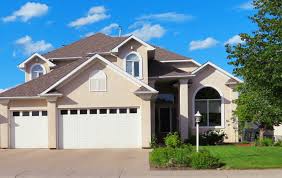



There is something deeply alluring about working in real estate and property development. After all, it’s a sector that has the ability to alter the appearance of entire cities, towns and even neighborhoods. The prospect of being involved in projects that have such an enormous impact on society is exciting for most people, but what may put some people off is how much time and money it can cost to become a property developer. Whether you want a career change or are looking for an investment opportunity, becoming a property developer requires both time and capital up front. It can take years to build up your resume, network and savings account to even begin thinking about investing in properties as a business venture. However, if you’re willing to invest in your future, there are many ways you can become a property developer and enjoy the perks that come with it.
If you want to learn how to become a property developer, the first thing you should do is learn who represents property developers. There are two main organizations that represent developers across the United States: The National Association of Realtors (NAR) and the National Association of Home Builders (NAHB). These organizations each host events, conferences and seminars that are designed to help property developers further their careers and learn the latest trends and topics in the industry. Realtors represent people who buy real estate and help people sell their property when they want to move. Home builders, on the other hand, help people construct new properties from the ground up. These are very different industries that require different skill sets. If you want to become a property developer, you’ll want to contact the National Association of Home Builders.
After you’ve learned who represents developers and what kind of properties they build, it’s important to learn the properties you can develop. The process of becoming a licensed developer is lengthy and involves many steps, so it’s important to stay focused on areas where you have the best opportunity to succeed. While there are many types of properties you can develop, there are a few in particular that are great for beginners. Start with Commercial Investment Properties Commercial investment properties are large properties that are designed for multiple tenants to lease and operate a business from. Apartments for Rent One of the more common developments for beginners is apartment complexes for rent. Single Family Homes Alternatively, you can also build and sell single-family homes as a property developer.
Before you can begin developing properties, you have to become a registered property developer with your local government or city council. This process varies from city to city, but each city requires developers to register with the government before they are permitted to begin building new properties. Becoming a registered developer requires you to complete a registration form and pay a fee, but the process is straightforward. Registration Requirements Typically registration requirements vary depending on the volume of properties you plan to build. To become a registered property developer, you’ll likely need to prove that you have the financial resources to build and sell properties. To prove your financial worthiness, you’ll often need to submit documentation regarding your savings, credit score and other factors that prove you are able to complete construction projects and sell them for a profit.
Becoming a licensed real estate developer is a lengthy process that involves many hours of studying, testing and financial investment. As such, it’s important to learn the basics of real estate and development before you commit to the process. Fortunately, there are dozens of free online courses you can use to learn the basics of real estate development. Coursera, edX or the Open Education Alliance are just a few examples of free, online platforms that host real estate development courses. You can also read books on the subject by industry leaders like Robert Kiyosaki, Donald Trump and George S. Yoshida, who have written bestselling books on the topic of real estate development.
With the basics of real estate development under your belt, you can begin to lay out a plan of attack for how to become a licensed property developer. Licensing requirements vary depending on your local government, but the process typically involves three steps: Taking an exam and meeting minimum score requirements Meeting minimum financial requirements Providing proof of education and experience First, you’ll want to take the exam. Exam Requirements Exams vary depending on the type of developer license you are applying for. For example, if you want to apply for a general developer license, you’ll likely need to take the ARE (American Real Estate) exam. This exam is offered by the National Association of Realtors and covers the basics of real estate and development. If you want to apply for a special license, such as a home builder, you’ll need to take a separate exam.
Becoming a licensed property developer is a lengthy and challenging process, but the reward is worth it. Working in real estate development allows you to design and build properties at your own pace, while also helping people find a place to live. Working as a property developer can also be very lucrative, with many developers earning over $100,000 per year. If you are passionate about real estate and want to get involved, the best way to do so is to follow the steps listed above.